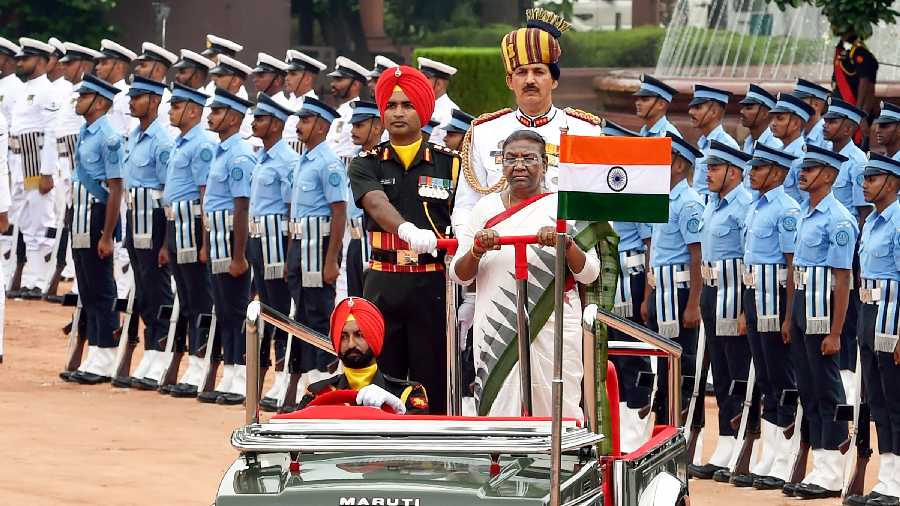A change of guard in Rashtrapati Bhavan is a solemn moment. The departing president, Ram Nath Kovind, spoke with becoming solemnity in his farewell address about the founders of this modern nation that exemplified liberty, equality and fraternity. Without this ‘trinity’, the purpose of democracy would be defeated. The address, however, with the recitation of great names from Rabindranath Tagore to Subhas Chandra Bose and allusion to Jawaharlal Nehru as well as Shyama Prasad Mookerjee, could seem more of an enactment of solemnity than meaningful inspiration. Mr Kovind’s identity as Dalit had been flaunted by the Narendra Modi government to prove its egalitarian credentials and draw the scheduled castes close. Yet under Mr Kovind’s watch, crimes against Dalits and indigenous peoples grew instead of dropping as other crimes did, especially in the pandemic years. In 2020, a scheduled caste person was subject to a crime every 10 minutes. Since 2018, 1.3 lakh cases of crimes against Dalits were registered. Even that was not easy. Upper castes and the administration make it difficult for Dalits to complain, and cases may take years to reach the courts. Meanwhile, in 2019, crimes against scheduled tribes rose by 26.5 per cent. Equality seems elusive.
The new president, Droupadi Murmu, is from an indigenous community. In her speech, Ms Murmu presented her rise from a poor family to the position of First Citizen as proof of the strength of India’s democracy. The solemnity of these moments was undermined not just by the triumphal commentary of BJP leaders celebrating the Modi government’s egalitarian credentials in having brought a Dalit and then, in the 75th year of Independence, the member of an indigenous group, to the presidential chair, but also by the oppression and cruelty that afflict the country. Liberty did not mean anything for Stan Swami, and means little for protesters against citizenship laws, critics and dissenters, who are in prison. Fraternity is hardly the experience of those facing the unchecked bullying and violence of majoritarian vigilantes. The cultivation of hate, the distortion of education and of independent institutions, or the destruction of social harmony may be achievements, but not those envisioned by the leaders whom the former and present presidents mentioned. Rather, this may be the watershed Mr Modi dreams of. Unless, of course, the people think differently.











